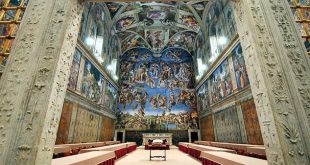
The good and the bad from government’s tabled amendments
Kampala, Uganda | IAN KATUSIIME | The demand for electoral reforms in Uganda has been a persistent cry from the opposition and civil society for over ten years with each election cycle prompting a new call for the government to introduce them. Ministers responsible are usually dodgy even when Speaker of Parliament Rebecca Kadaga routinely puts them on the spot – demanding that reform bills are tabled in time.
Attorney General William Byaruhanga was acting under such pressure when he tabled six reform bills to parliament on July 25. The proposals immediately sparked debate and a fumble as they appeared unpalatable to the opposition.
Amidst the acrimony, the attorney general on July 30 returned to parliament and tabled the “proper” bills. He said what had been debated days earlier was a distortion of what was happening.
The bills are Presidential Elections Amendment Bill 2019; the Parliamentary Elections Amendment Bill, 2019; the Electoral Commission Amendment Bill, 2019; the Local Governments Amendment Bill, 2019, and The Political Parties and Organisations Amendment Bill, 2019. The latter bill prescribes a code of conduct for political parties.
One of the key issues in the bills is regulation of independent candidates. The amendments propose that a person must cease to be a member of a political party or organisation twelve months before nomination day to be eligible to stand as an independent candidate.
If this amendment is passed, it is argued, it would reduce on the internal party bickering caused by a rising number of Independent MPs with a known party affiliation. Candidates who are defeated in the party primaries usually contest as independents. To the annoyance of parties, many have won the seat and swollen the numbers of Independents in parliament. The parties want to block that.
Another key amendment is the proposal to hold all elections for newly created administrative units only during general elections. This proposal, it is argued, would help the Electoral Commission plan its poll finances better because it was unable to hold many elections this year for newly created units due to inadequate funds.
Interviews with lawyers, MPs, civil society leaders and academics show a lot of disagreement on how to go about electoral reforms.
Fixation with electoral reforms
“This country has always had a fixation with electoral reforms. The magic bullet will not come from reforming laws, we have to find other ways,” says Elison Karuhanga, a government-leaning lawyer.
He says Uganda is “permanently” looking for a magic bullet for its electoral problems yet history shows that we have dealt with electoral issues in one way or another.
He says most elections in Ugandans have been different. Karuhanga argues that since the December 1980 election which was the first multiparty election based on a parliamentary system, the trend of having some reform at each subsequent election has persisted.
The 1996 elections, he points out, were the first elections where Ugandans directly voted for President and the 2001 was the first regular election held after five years as required in the constitution.
Karuhanga bases on the fact that elections did not happen as scheduled in 1967, 1971, and 1985. The 1966 Buganda Crisis impeded the elections of 1967, while Idi Amin cancelled due elections in 1971 after he toppled then President Milton Obote in a military coup. In 1985, the Obote II government was in collapse and was incapable of holding elections.
For the 2006 elections, Uganda had voted for a multiparty political system in 2005 and it was the first time in an election where a president was voted directly in a multiparty system.
“There’s nothing we are proposing now that we have not dealt with in our electoral history, Karuhanga says adding “we need more than just reform agitation. We need broader conversations not just rooted in elections.”
But some optimistic minds say reforms are overdue and in the right direction.
Frank Rusa, Executive Secretary of the Inter Party Organisation for Dialogue (IPOD) says the Code of Conduct which has been introduced as an amendment to the Political Parties and Organisations Act has been pending for years. He says the code of conduct is a good thing because it sets rules of engagement.
“The National Consultative Forum (NCF), which is a meeting point for all political parties, has been working on this code of conduct for many years, they have just never agreed upon it.”
Rusa says political parties are going to analyse the proposed amendments.
“What is contentious maybe is the suggestion that parties should only use money that is allocated to them which is not enough, so this curtails their spending,” says Rusa.
According to Rusa, there has been lack of a clear mechanism for engagement but says this is a chance for parties to discuss and debate proposals put forward.
For those saying the reforms are not comprehensive enough, he argues it is now an opportunity for them to make their additions and subtractions.
 The Independent Uganda: You get the Truth we Pay the Price
The Independent Uganda: You get the Truth we Pay the Price



